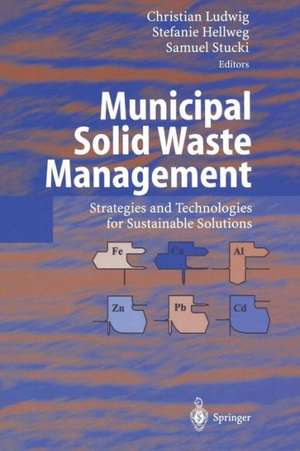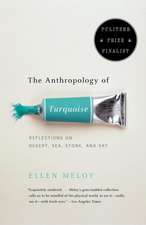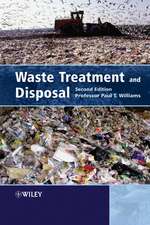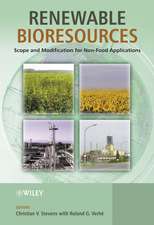Municipal Solid Waste Management: Strategies and Technologies for Sustainable Solutions
Editat de Christian Ludwig, Stefanie Hellweg, Samuel Stuckien Limba Engleză Paperback – 24 oct 2012
Preț: 403.37 lei
Nou
Puncte Express: 605
Preț estimativ în valută:
77.20€ • 79.75$ • 64.25£
77.20€ • 79.75$ • 64.25£
Carte tipărită la comandă
Livrare economică 26 martie-09 aprilie
Preluare comenzi: 021 569.72.76
Specificații
ISBN-13: 9783642628986
ISBN-10: 3642628982
Pagini: 560
Ilustrații: XIX, 535 p.
Dimensiuni: 155 x 235 x 29 mm
Greutate: 0.78 kg
Ediția:Softcover reprint of the original 1st ed. 2003
Editura: Springer Berlin, Heidelberg
Colecția Springer
Locul publicării:Berlin, Heidelberg, Germany
ISBN-10: 3642628982
Pagini: 560
Ilustrații: XIX, 535 p.
Dimensiuni: 155 x 235 x 29 mm
Greutate: 0.78 kg
Ediția:Softcover reprint of the original 1st ed. 2003
Editura: Springer Berlin, Heidelberg
Colecția Springer
Locul publicării:Berlin, Heidelberg, Germany
Public țintă
ResearchCuprins
1 Introduction.- 1.1 The Problem with Waste.- 1.2 History of Waste Management.- 1.3 Directing Material Flows.- 1.4 Conclusions.- References.- 2 Waste Disposal: What are the Impacts?.- 2.1 The Diversity of Municipal Solid Waste (MSW).- 2.2 Emissions from Municipal Solid Waste Landfills.- 2.3 MSW Management and Technology in China.- References.- 3 Recycling, Thermal Treatment and Recovery.- 3.1 Reduce, Reuse, Recycle: The Zero Waste Approach.- 3.2 Mechanical Sorting Processes and Material Recycling.- 3.3 Conventional Thermal Treatment Methods.- 3.4 Emissions from Incinerator Ash Landfills.- 3.5 Secondary Raw Materials from Waste.- 4 Biological and Bio-Mechanical Processes.- 4.1 Mechanical-Biological Treatment of Waste (MBP).- 4.2 Composting and Anaerobic Digestion.- 4.3 Active Landfill Control and Stabilization of MSW.- 4.4 Biotechnology for the Treatment of Inorganic Wastes.- 5 Advanced Thermal Treatment Processes.- 5.1 Energy Recovery from Waste.- 5.2 Optimizing Incineration for Heavy Metal Recovery.- 5.3 High-Temperature Melting of Municipal Solid Waste.- 5.4 The Characteristics, Behavior and Durability of High Temperature Materials.- 5.5 Separate Treatment of Hazardous MSW Components.- 6 Ecology: Which Technologies Perform Best?.- 6.1 Assessment Tools for Waste Treatment Systems.- 6.2 An Introduction to Life-Cycle Assessment.- 6.3 Case Study: An LCA of Waste Treatment Processes.- 6.4 Long-Term versus Short-Term Impacts.- 6.5 Conclusions.- References.- 7 Assessing and Improving Social Compatibility.- 7.1 An Introduction to “Social Compatibility”.- 7.2 The Tool “Social Compatibility Analysis SCA”.- 7.3 Instruments for Improving Social Compatibility.- 7.4 Siting Waste Facilities: Case Studies.- 7.5 Conclusions.- References.- 8 Towards Sustainable WasteManagement.- 8.1 Sustainability of Waste Management and Treatment.- 8.2 Scenarios for a Future Waste Management and Treatment.- 8.3 Case studies.- 8.4 Recommendations for Development Towards Sustainability.- 8.5 Summary and Conclusions.- References.- 9 Concluding Remarks.
Textul de pe ultima copertă
The way municipal solid waste is handled greatly determines its impact on the local as well as the global environment. New technologies have emerged for the treatment of waste, for the recovery of raw materials and energy, and for safe final disposal. The environmental performance of technologies, their social acceptance and their economic viability are key issues to be considered in sustainable waste management. This book provides an overview of current practices in waste management and a synthesis of new developments achieved through interdisciplinary discussions of recent research results.
Caracteristici
Considers the "integrated view" The focus on "Directing Material Fluxes" takes into account that waste management will no longer be limited to the end of pipe solutions but is part of the management of material fluxes












